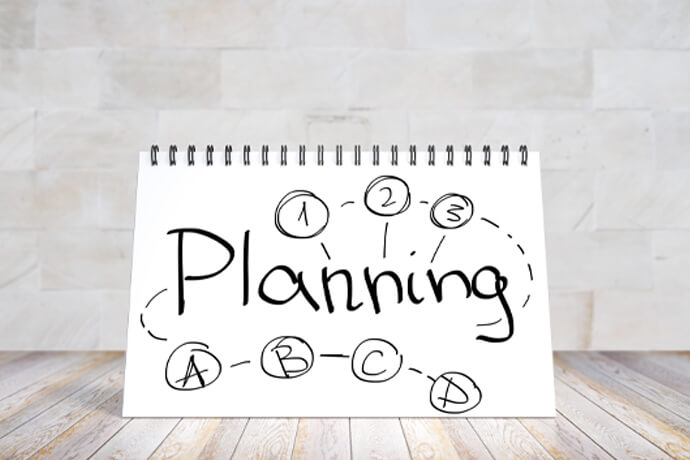 SPEAKERS
SPEAKERS
 TOPICS
TOPICS
Planning and executing a successful event is no small feat, but with the right guidance, it can be an exhilarating journey. Whether you're hosting a grand celebration, a professional conference, or a memorable get-together, we've got you covered.

This step-by-step guide gives you all the tools and knowledge necessary to bring your event vision to life.
So, grab your imagination, it's time to turn your dreams into reality and create an unforgettable experience with everyone talking long after the confetti has settled.
Let's dive in and make magic happen together…
Here are the things to do when you’re planning a successful event:

Imagine you're an architect designing the blueprint for an extraordinary event. What's the first step? Setting goals and objectives. Just like a compass guiding you through uncharted territories, these goals give your event a clear direction and purpose.
Are you aiming to educate, entertain, or bring people together? Maybe you want to raise funds for a cause or create networking opportunities. Whatever the case, setting clear goals and objectives helps you stay focused, make informed decisions, and measure the event's success.

Creating a budget and timeline is your secret sauce for success when it comes to event planning. Think of it as a financial and time roadmap to keep you on track and prevent unexpected detours. Here's how to tackle it:
Start by outlining all the expenses you anticipate for your event. From venue costs and decorations to catering, entertainment, and marketing, break it all down. Consider any potential income sources, like ticket sales or sponsorships that can offset your expenses. This will help you determine how much you can afford to spend and allocate funds wisely.
Next, grab a calendar and mark down important milestones. Identify key tasks and deadlines, such as booking the venue, sending out invitations, arranging for vendors, and finalizing event details. Think about how much time each task will require and set realistic deadlines. This will keep you organized and ensure everything falls into place smoothly.
Now comes the magic of balancing your budget and timeline. As you allocate funds to each expense, consider the associated timeline. For example, if you need to secure a venue by a certain date, budget accordingly to cover the deposit. Keep a close eye on the timing of payments and ensure your expenses align with your timeline.
Remember, surprises may pop up along the way. It's essential to have a contingency budget and build some flexibility in your timeline to handle unforeseen circumstances. This will help you adapt and overcome any challenges that come your way without derailing the entire event.
Now comes the fun part: securing the right venue and vendors to make your event successful. Think of it as building a dream team to bring your vision to life. Let's start with the venue, shall we?
Whether you're dreaming of a charming garden for a fairytale wedding or a trendy rooftop for a swanky soirée, there's a perfect spot out there just waiting to be discovered. Take your time, visit different venues, and find one that aligns with your style and fits your guest count like a glove.
Imagine having a talented caterer serving up delectable bites that leave your guests craving more. Or maybe you want to add some flair with a fantastic DJ who can get everyone on their feet, dancing the night away.
This is all important while securing the right venue and vendors
First things first, think about your target audience. Who are the people you want to reach? Are you organizing a music festival for hip-hop lovers or a conference for tech enthusiasts?
Once you've got that down, brainstorm creative ways to capture their attention. Social media is your best friend here. Create engaging posts, share teasers, and use catchy hashtags to build anticipation. Don't forget to showcase your event's unique selling points. Maybe it's the lineup of incredible speakers, the interactive workshops, or the delicious food trucks that will be on-site.
Leverage the power of email marketing. Craft eye-catching newsletters, inviting potential attendees to join in on the excitement. Share exciting updates, evaluation, exclusive offers, and maybe even a sneak peek of what's in store. And remember, word of mouth is a powerful tool.
Encourage your attendees to spread the word to their friends and colleagues. You could even offer referral bonuses or create a fun social media contest to get everyone buzzing.
Partner with influencers or local businesses aligning with your event's theme. They can help amplify your message and reach new audiences. And hey, don't forget about traditional marketing tactics too.
First off, reflect on what made your event shine.
Take a look at the metrics that matter to you. Maybe it's the number of tickets sold, the engagement on social media, or the surveys filled out by attendees. This valuable feedback will provide insights into what worked and what can be improved for future events.
Also, stroll down memory lane and analyze your event's highlights and challenges. Did you have a stellar keynote speaker that wowed the crowd? Or perhaps there were hiccups in the registration process that caused some frustration. By understanding the successes and areas for improvement, you'll be better equipped to plan even more extraordinary events.
Take those valuable lessons learned and incorporate them into your next event. Maybe it's enhancing the attendee experience by offering more interactive activities or streamlining the registration process to minimize wait times. It could also involve expanding your reach by partnering with like-minded organizations or exploring new venues that align with your vision.
When it comes to event planning, it's essential to avoid potential pitfalls that can hinder the success of your endeavor like poor logistics. Here are five things you should steer clear of:
The timeline for event planning can vary depending on the size, complexity, and nature of the event you're organizing. However, as a general guideline, starting planning your event at least 6 to 12 months in advance is recommended, especially for larger-scale or more complex events.
Staying within your budget requires careful financial management and strategic decision-making. Start by creating a detailed budget that includes all anticipated expenses, such as venue, catering, marketing, equipment, and staff. Prioritize your spending based on the most critical aspects of your event.
Staying within your budget requires careful financial management and strategic decision-making. Start by creating a detailed budget that includes all anticipated expenses, such as venue, catering, marketing, equipment, and staff. Prioritize your spending based on the most critical aspects of your event.
The metrics you use to evaluate event success may vary depending on your goals and objectives. Some common metrics to consider are attendance and ticket sales. Also, participant feedback and satisfaction surveys, social media engagement, media coverage, revenue generated, ROI are important.